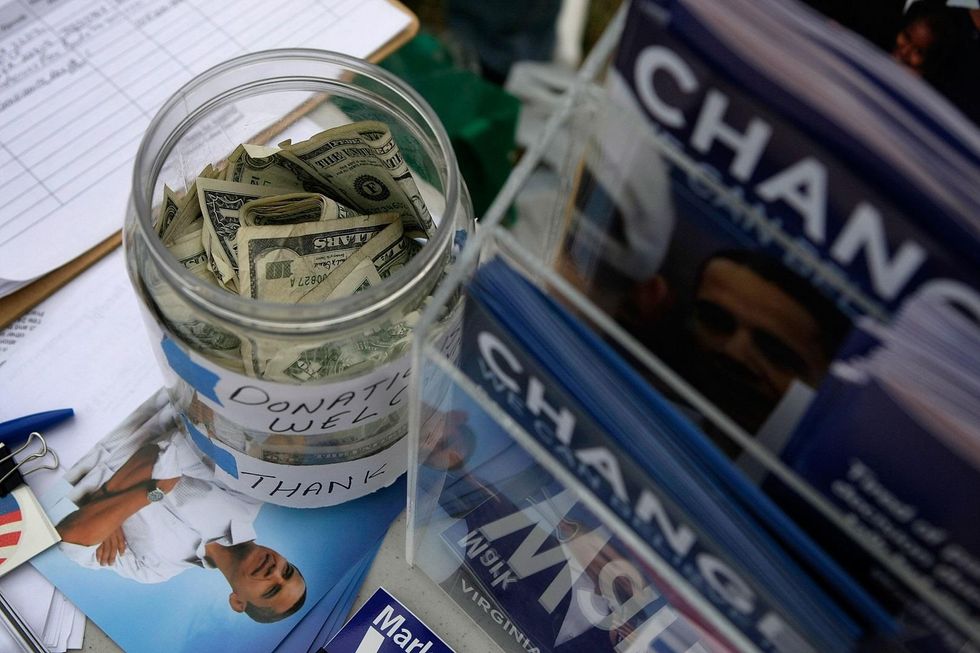
In 2018, Democratic candidates received far more anonymous "dark money" donations than their Republican counterparts. (Alex Wong/Getty Images)

In 2018, Democratic candidates for U.S. Senate and House races received significantly more support from anonymous “dark money” sources than their Republican counterparts.
The term “dark money” refers to money that is donated to a political campaign or cause anonymously, and with no way to track the original donor.
Nonprofits can decide whether or not to disclose their donors. 501(c)(3) nonprofits have to be careful about how politically involved they get, but 501(c)(4) nonprofit organizations like the National Rifle Association or Planned Parenthood, 501(c)(5) nonprofits like unions or 501(c)(6) organizations like chambers of commerce, can all donate to political causes as long as doing so makes up less than half of their total expenditures.
Democrats have long criticized the presence of dark money in politics. On June 27, 2018, Sen. Sheldon Whitehouse (D-R.I.) introduced a measure to regulate dark money in politics. All 48 of his Democratic colleagues signed onto that measure, and 149 Democratic members of the House signed a similar measure. No Republican members of either house of Congress signed onto either bill.
According to the Center for Responsive Politics and a Wesleyan Media Project report, the majority of donations to Democrats in 2018 came from dark money sources.
The contrast was most stark when it came to U.S. Senate races. At least 60.9 percent of all funding for Democrat Senate campaigns in 2018 came from dark money sources. An additional 24 percent came from sources that were only partially disclosed, and only 15 percent of sources were fully disclosed.
In contrast, only 7.7 percent of Republican funding came from dark money sources, and 2.8 percent from partially disclosed sources. A whopping 89.5 percent of all donations to Republican Senate races were fully disclosed.
The gap when it came to funding for candidates in the U.S. House of Representatives was closer, with 14.3 percent of Democratic funding coming from dark money sources, compared to 13.7 percent for Republicans. However, in these races, 85.4 percent of donations to Democratic candidates came from fully disclosed sources, while 84.7 percent of donations to Republican candidates, came from groups that disclosed their own donors, but accepted money from groups that did not.
The largest amount of money came from the group Majority Forward, which gave to Democratic Senate races in Arizona, Florida, Indiana, Missouri, Montana, North Dakota, Nevada, Tennessee, and West Virginia. This group spent an estimated $40 million, and was responsible for airing 29,050 political ads supporting Democratic candidates in those states.
While Democratic candidates may have gotten an exceptional amount of dark money this year, this is not the first time that they have benefited from it. Organizations like the Tides Foundation (founded in 1976) have long served as clearing houses for donations to liberal causes by donors who wish to remain anonymous.